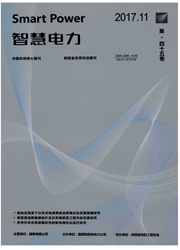
欢迎您!东篱公司
退出

 中文摘要:
中文摘要:
优化采暖通风与空调(HVAC)系统的控制策略能够降低其能耗。将1个典型的HVAC系统建模成包含3个子系统,且优化目标为能耗最小,并利用分散式步长递减且协方差矩阵适应的进化策略求解在满足室内人员舒适度的基础上能耗最少的HVAC系统的控制策略。算例结果显示,相比于常规控制,由进化策略得到的控制策略可以节省大于34%的能耗。
 英文摘要:
英文摘要:
Optimization of HVAC (Heating, Ventilation, and Air-conditioning) system control strategy can implement the energy conservation. A typical HVAC system is formulated as an optimization problem which contains three subsystems. We also use a decentralized CMDSA-ES (evolution strategy with covariance matrix and decreasing step-size adaptation) to search out the optimal control strategy of HVAC system. Numerical results show the control strategy obtained by decentralized CMDSA-ES can save about 34% energy consumption compared with regular control.
 同期刊论文项目
同期刊论文项目
 同项目期刊论文
同项目期刊论文
 期刊信息
期刊信息
